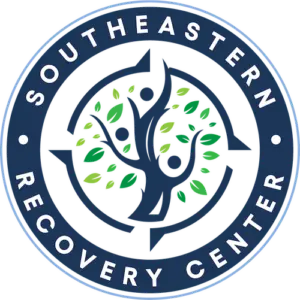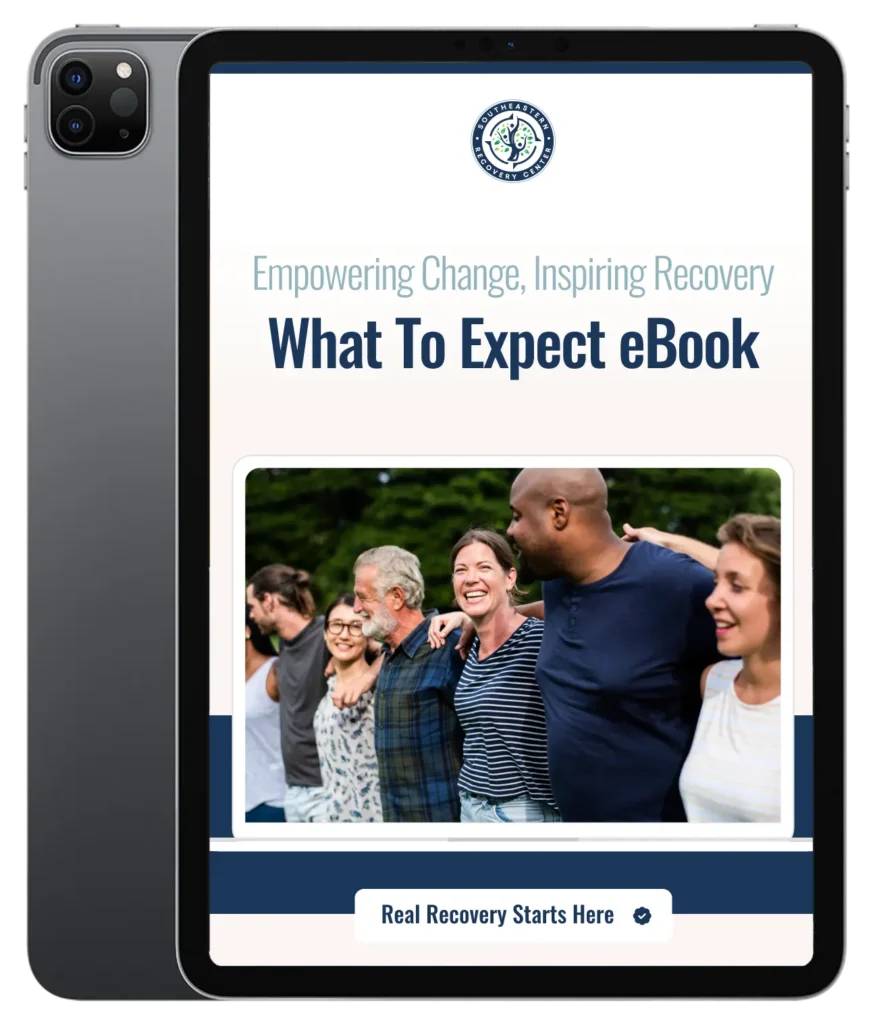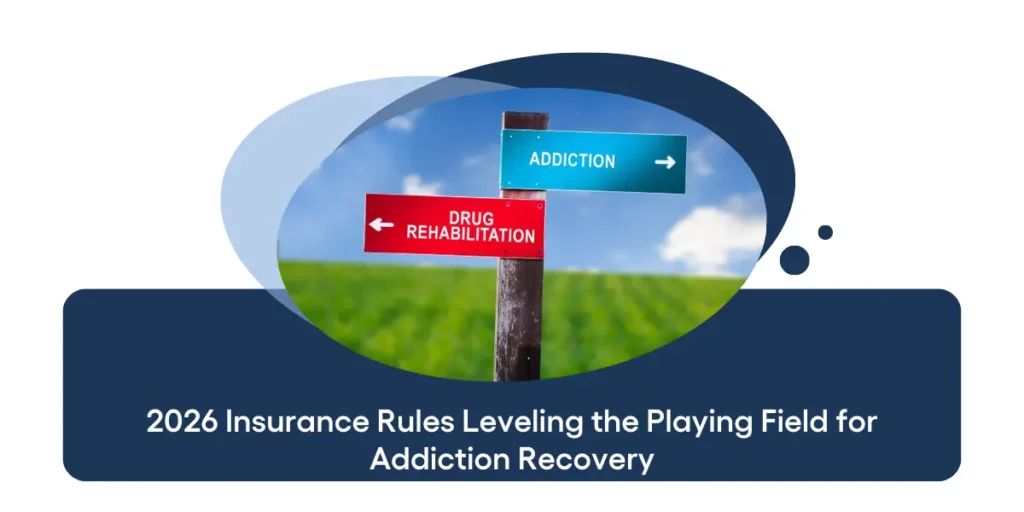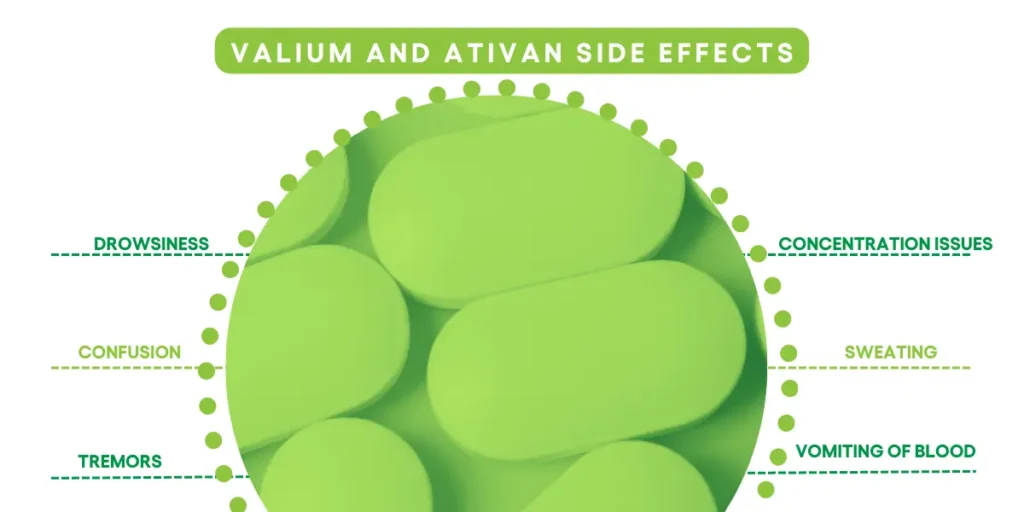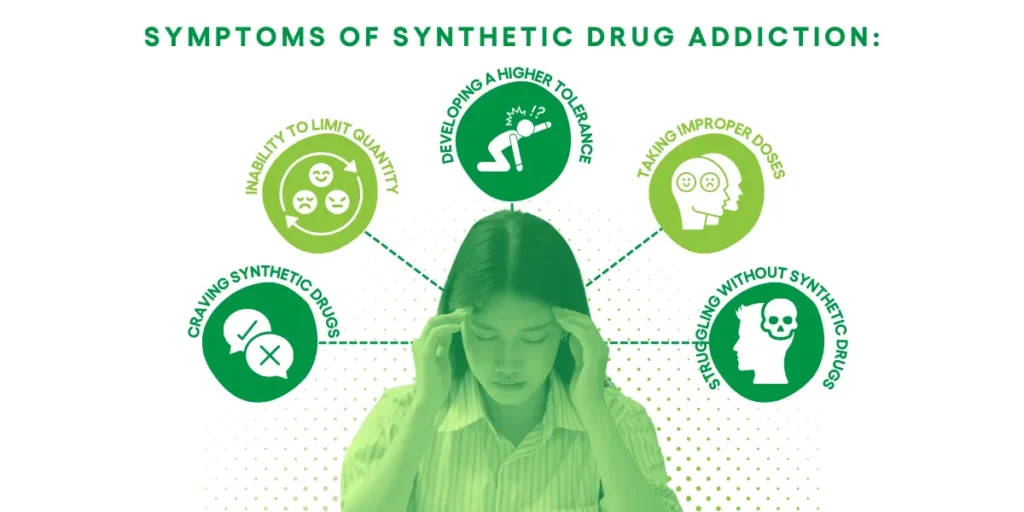It doesn’t happen overnight, but with frequent or heavy drinking, a person can start developing an addiction within just a few months, depending on their body, habits, and genetics.
There is a stark difference between repeated casual drinking and the development of dependence or alcohol addiction.
Alcohol consumption is baked into American life, from mimosas at brunch to happy hours after work, to say nothing of bar crawls and house parties. With drinking alcohol being linked to social events, there are plenty of opportunities to drink so much that you develop a dependence without even realizing.
In this post, we’re going to outline the factors that contribute to getting addicted to alcohol, including risk factors, symptoms, and treatment options.
Alcohol addiction, also known as alcohol use disorder (AUD), is a complex condition that can develop over time due to a variety of factors, including genetic predisposition, social influences, mental health conditions, and individual drinking patterns. One of the most common questions about alcohol addiction is: “how long does it take to get addicted?” The answer isn’t straightforward, and it varies from person to person. Explore the factors influencing alcohol addiction, the stages of addiction, and the approximate timelines for when alcohol use can become problematic in an individual.
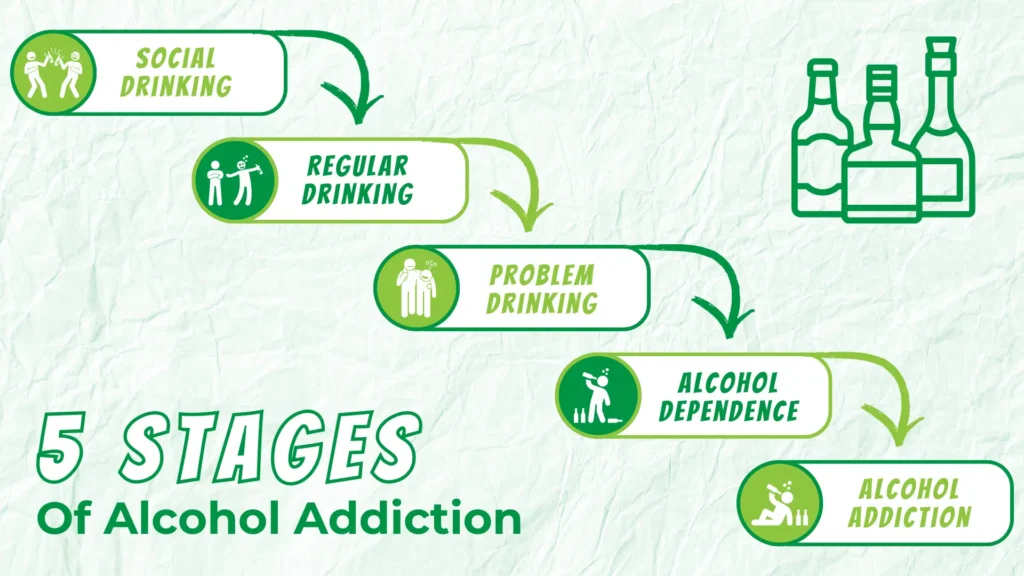
What is Alcohol Addiction?
An alcohol addiction, as defined by the National Institute on Alcohol Abuse and Alcoholism (NIAAA) is a chronic relapsing disorder associated with compulsive alcohol drinking. Alcohol addiction is also known as alcohol abuse, alcohol dependence, or alcoholism.
Conditions relating to impaired ability to stop or control alcohol use fall under the umbrella of Alcohol Use Disorders (AUDs). Alcohol Use Disorders are regarded as representing a spectrum from mild to more severe. On the AUD spectrum, alcohol addiction is regarded as being on the more severe end.
Alcohol addiction is a chronic disease characterized by an inability to control alcohol consumption despite the negative consequences. It often involves a physical dependence on alcohol, where the body becomes reliant on it to function normally. The path to addiction is gradual – often starting with occasional drinking, progressing to regular use, and eventually leading to dependence and addiction.
Addiction is influenced by multiple factors:
- Genetics: Studies suggest that genetics account for approximately 50% of the risk for developing alcohol addiction. Individuals with a family history of alcohol addiction are more likely to develop the condition themselves.
- Environment: Social environment plays a crucial role in developing alcohol addiction. People exposed to heavy drinking environments, such as certain social circles, workplaces, or even family gatherings, may be more likely to develop unhealthy drinking habits.
- Mental Health: Individuals with mental health disorders like depression, anxiety, or bipolar disorder are at a higher risk of developing alcohol addiction. Alcohol is often used as a coping mechanism, leading to a cycle of dependence.
- Age of Onset: The age at which a person starts drinking can impact the speed at which addiction develops. Adolescents who begin drinking at an early age are more likely to develop alcohol addiction later in life.
- Frequency and Quantity: The more frequently and heavily a person drinks, the faster they are likely to develop an addiction. Binge drinking, defined as consuming large amounts of alcohol in a short period, can accelerate the onset of addiction.
How does Alcohol Addiction Develop?
There are two primary elements that lead to an alcohol addiction developing:
- The tangible, immediate benefits of drinking alcohol. These benefits include the buzz from alcohol producing an immediate feeling of warmth and relaxation, lowered inhibitions, and a sense of being more relaxed and loose. These quick, positive-seeming effects can become a crutch for individuals in social settings. When someone feels even the slightest bit negative, they might reach for a bottle or a glass of alcohol just because one’s around.
- The over-time impact of alcohol consumption on a person’s organs and chemical processes. Alcohol sends dopamine signals to an individual’s brain, causing their mind to naturally seek it out. Alcohol also has indirect impacts on neurological wiring, such as an individual associating fun memories with drinking. This naturally causes them to crave alcohol more.
Download Our Free Alcohol Addiction Guide Here
Symptoms of Alcohol Addiction
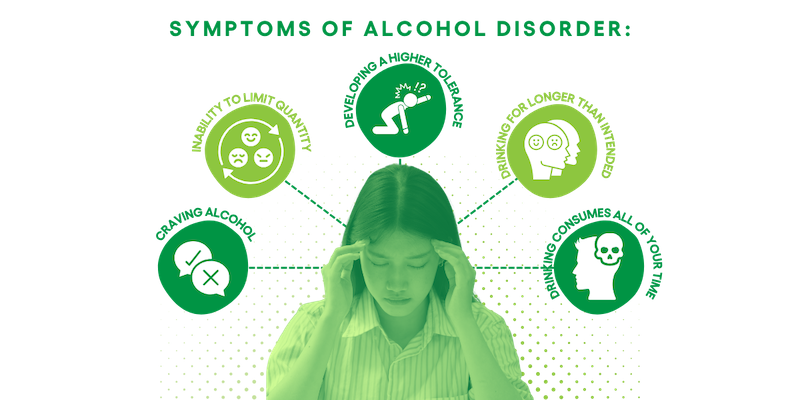
In some cases, an individual may display signs of alcohol addiction. These can include:
- Craving alcohol
- Inability to limit quantity or frequency of alcohol consumption
- Developing a higher tolerance for alcohol
- Drinking for longer than intended
- Allowing drinking to take up large portions of time
There are also physical symptoms that can manifest in cases of alcoholism, though these will vary in severity from person to person. Examples include a flush in the face, weight fluctuations as a result of alcohol impacting appetite, and an increased number of bruises and scrapes due to alcohol lowering platelet counts.
How Long Does It Take to Overcome Alcohol Addiction?
The time it will take an individual to overcome alcohol addiction will vary wildly. Factors that impact recovery time include:
- Age
- Environment
- Duration and intensity of alcohol consumption
- Physical health
- Mental health
- Alcohol dependence levels
Furthermore, it’s important to keep in mind the various alcohol addiction withdrawal symptoms that may be encountered during the recovery process, such as:
- Headaches
- Anxiety
- Alcohol cravings
- Increased stress
- Physical exhaustion
- Insomnia
- Poor mental health
- Tremors, particularly in the hands
- Seizures
Experiencing these symptoms after a reduction in your alcohol consumption could push you towards a relapse. If you or a loved one is experiencing alarming symptoms of alcohol withdrawal, call 911 or go to the nearest emergency room.
Is There a Timeline for Alcohol Withdrawal Symptoms?
Alcohol withdrawal symptoms occur because a prolonged period of alcohol consumption causes the nervous system to adjust to the level of alcohol in an individual’s body. Once this level of alcohol drops, an individual’s brain is still functioning as if alcohol is present, causing withdrawal symptoms to set in.
Alcohol withdrawal symptoms usually begin around 6 hours after an individual’s last drink and peak in severity around 48-72 hours after that drink. That said, withdrawal symptoms can persist for weeks or even months, depending on the individual.
What Are the Best Ways to Treat Alcohol Addiction?
It can be very challenging to recover from alcoholism due to the physical, mental, and emotional strain it places on an individual. This is why figuring out which alcohol addiction treatment you respond to best is so important for success.
Some of the most popular alcohol addiction treatments include:
- Detoxification: The carefully orchestrated process of ceasing all intake of alcohol. Medical professionals will provide guidance on how to best approach a detox. Methods can vary from quitting cold turkey to tapering off.
- Behavioral treatments: These treatments, also known as alcohol counseling, combine the expertise of a health care provider to guide recovery. This includes methods such as cognitive-behavioral therapy (CBT) and motivational interviewing.
- Medications: There are a few medications that have been approved for use in treating alcohol addiction, such as Acamprosate, Disulfiram, and Naltrexone. These three medications are not interchangeable, as each one causes a different effect to help a patient fight off their addiction.
Medical facilities will carefully consider all possible treatment options and determine if an inpatient or outpatient program would be best for rehabilitation. Inpatient programs involve a patient living on-site for their alcohol addiction treatment, while outpatient programs allow patients to live at home and rely on scheduled treatment sessions.
Aside from working with a health care provider at a medical facility, anyone suffering from alcohol addiction can try group therapy for an additional layer of support. Sharing a space with other individuals experiencing alcoholism can help provide the support and accountability one needs to overcome their ailment.
Free Sources That Help with Alcohol Addiction
In case cost is an issue, there are free resources available that can help with curing alcohol addiction:
- Localized treatment guides. Resources such as our treatment guides for North Carolina, South Carolina, and Virginia compile information that makes it easier for an individual to assess their options. These guides outline treatment options, list ways to pick an optimal alcohol treatment center, and provide links to resources, statistics, sober activities and more to help with recovery.
- State-funded drug rehabilitation. Websites such as the American Addiction Centers website can find state-funded rehab centers located near you.
- Loans. There are funds and grants that can be used to pay for substance abuse treatment. Some recovery centers, such as our own, also provide financial assistance to help individuals or loved ones cover the cost of treatment.
- Friend & family support. Sometimes embarrassment or feelings of guilt and shame can prevent someone from reaching out to loved ones for support. But their help can prove invaluable on the road to recovery from an addiction to alcohol. For example, friends and family can help personalize possible solutions and can provide aid in contacting and affording professional treatment.
According to the 2023 National Survey on Drug Use and Health (NSDUH), 28.9 million people had AUD (ages 12 and older).
5 Stages of Alcohol Addiction
Alcohol addiction typically develops in stages, each with its own characteristics and risks:
- Experimentation and Social Drinking: Most people are introduced to alcohol in social settings, such as parties or family gatherings. During this stage, drinking is occasional and usually done in moderation. For many, this stage never progresses to addiction. However, for some, it can mark the beginning of a deeper relationship with alcohol.
- Regular Drinking: As drinking becomes a regular part of life, individuals may start to drink more frequently. This stage is characterized by drinking to unwind after work, to cope with stress, or to enhance social experiences. The risk of developing an addiction increases as alcohol consumption becomes routine.
- Problem Drinking: At this stage, drinking patterns start to have negative consequences. Individuals may begin to experience issues in their personal or professional lives, such as relationship problems, decreased productivity, or legal troubles related to alcohol use. Despite these consequences, they continue to drink, indicating a loss of control.
- Alcohol Dependence: Dependence occurs when the body becomes physically reliant on alcohol. Individuals may experience withdrawal symptoms, such as anxiety, tremors, or nausea, when they try to reduce or stop drinking. Alcohol consumption becomes necessary to avoid these symptoms, and drinking takes precedence over other aspects of life.
- Alcohol Addiction: The final stage is full-blown addiction, where alcohol consumption is compulsive and out of control. At this point, the individual may prioritize drinking over everything else, including their health, relationships, and responsibilities.
Warning Signs of Alcohol Addiction
Recognizing the warning signs of alcohol addiction early can help prevent the condition from progressing. Some signs to watch for include:
- Increased Tolerance: Needing to drink more alcohol to achieve the same effects is a common early sign of developing dependence.
- Withdrawal Symptoms: Experiencing symptoms like anxiety, tremors, or irritability when not drinking can indicate physical dependence.
- Loss of Control: Being unable to limit drinking, even when trying to cut back, is a key indicator of addiction.
- Neglecting Responsibilities: Prioritizing alcohol over work, family, or other responsibilities is a sign that drinking has become problematic.
- Continued Use Despite Consequences: Persisting in drinking despite negative consequences, such as health issues or relationship problems, is a hallmark of addiction.
According to the World Health Organization (WHO), alcoholic beverages contain ethanol, a substance that can cause dependency.

How Long Will It Take to Get Addicted to Alcohol?
The time it takes for an alcohol addiction to develop will vary wildly from person to person. This is because alcoholism is impacted by numerous factors relating to an individual and their surroundings. Common considerations include:
While some people might find themselves struggling with addiction sooner due to their unique situations, for others, it might take years of regular drinking before addiction takes hold. Find out how long it typically takes to develop an alcohol addiction, the stages of this progression, and the key risk factors to be aware of.
Weight
Body weight and body type impact how much an individual is affected by alcohol. Alcohol travels through bodies using the water found in the bloodstream. The more blood and water in an individual’s body, the less they’ll be impacted by alcohol. Bigger people tend to have more blood and water, which means that they’ll suffer from intoxication less severely than a smaller person drinking the exact same amount.
Psychological Factors
Alcohol addiction is related directly to mental health and emotional regulation. Alcohol consumption lowers inhibition, which can naturally increase the likelihood of someone consuming more alcohol than intended. Mental health disorders like depression and anxiety can also lead an individual to use alcohol as a crutch to manage symptoms. This sort of self-medication creates a co-dependent relationship between a user and alcohol that makes them more susceptible to getting addicted.
Age and Gender
Research has found that individuals who begin drinking prior to the age of 15 are over 10% more likely to develop alcohol use disorders compared to those who first started drinking at ages 19 or older. Meanwhile, studies show that men drink more often and more heavily than females and are diagnosed with alcohol use disorders more often (7% vs 3%).
Environmental Factors
The drinking habits of the people around an individual (family, friends, and coworkers) contribute to the odds of them developing alcoholism. The more alcohol usage is normalized around an individual, the more likely they are to engage in it, and the more likely they are to get addicted.
Genetics
Researchers have found evidence suggesting that alcoholism is a complex genetic disease. As such, variations in genes can impact risk levels of alcohol addiction for individuals.
Early Onset (1-2 Years)
For some people, alcohol addiction can develop pretty fast, sometimes within just one to two years of regular drinking. This is especially true for those with a strong family history of addiction or those who start drinking heavily at a young age. If someone is binge drinking or using alcohol as their main way to deal with stress or anxiety, the risk of developing an addiction quickly is even higher.
Here’s why it can happen so fast:
- Genetic Factors: If there’s a history of addiction in your family, you might be more likely to develop an addiction yourself—and it could happen sooner rather than later.
- Heavy Drinking Habits: Binge drinking, or drinking a lot in a short period, puts a lot of pressure on your brain’s reward system. This can speed up the changes in brain chemistry that lead to dependence.
- Coping Mechanisms: Using alcohol to cope with stress, anxiety, or depression might provide temporary relief, but over time, you might start relying on it more and more, leading to tolerance, dependence, and eventually, addiction.
In these early-onset cases, the shift from casual drinking to addiction can be surprisingly quick, often catching people off guard.
Moderate Onset (3-5 Years)
For many, the path to alcohol addiction takes a bit longer, typically developing over three to five years of regular drinking. This is the more common scenario, where drinking starts out social but gradually becomes more frequent and heavier.
Here’s what usually happens during this time:
- Increasing Consumption: What starts as occasional social drinking can slowly turn into a daily habit. As you drink more often, your body starts to need more alcohol to get the same effects, which can lead to dependence.
- Changes in Brain Chemistry: Regular alcohol use can slowly change your brain chemistry, especially in the parts of your brain that handle reward and pleasure. Over time, this can lead to addiction.
- Life Stressors: Stressful life events—like work pressure, relationship problems, or financial struggles—can lead to increased drinking as a way to cope. The more often you turn to alcohol, the higher your risk of developing an addiction.
With moderate onset, the shift towards addiction can be gradual, making it harder to notice until it’s already a problem.
Late Onset (5+ Years)
In some cases, alcohol addiction might take much longer to develop, particularly for those who start drinking later in life or who drink moderately over many years. These individuals might not see signs of addiction until five years or more of regular drinking. But even if it takes longer to develop, the addiction can be just as serious.
Here’s why it might take longer:
- Age and Lifestyle: People who start drinking later in life, like after retirement or after a big life change, might develop an addiction more slowly. They might start with moderate drinking, thinking they’re in control, but over time, their drinking can become a regular habit.
- Social and Cultural Norms: In some social circles or cultures, regular drinking is normal, so it might be hard to realize when drinking habits are becoming a problem.
- Lack of Awareness: With late-onset addiction, people might not realize they’ve crossed the line into dependency because they believe their drinking is under control. This can delay recognizing the problem and getting the help they need.
Late-onset addiction can be tricky because people often don’t see it coming and might be less likely to seek help, thinking their habits are just part of life or aging.
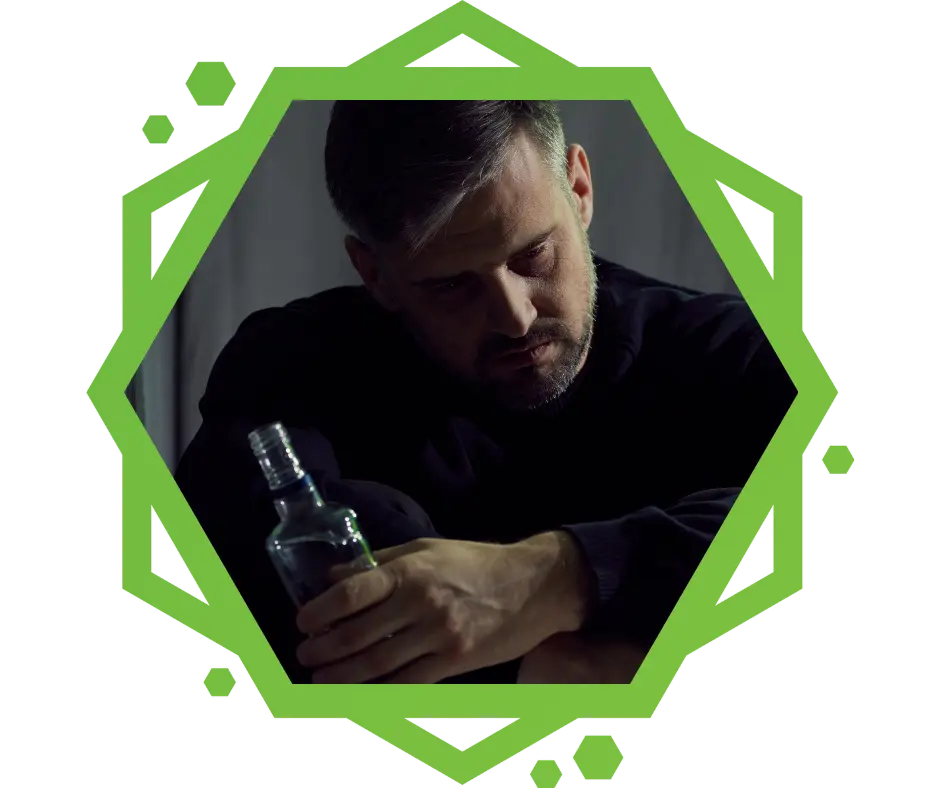
Prevention and Treatment for Alcohol Addiction
Preventing alcohol addiction means understanding the risks and making smart choices about drinking. Educating yourself on the dangers and factors that lead to addiction can help you make better decisions. Setting clear limits on how much and how often you drink can also reduce your risk. If you or someone you know starts showing signs of problem drinking, getting help early can stop it from turning into a full-blown addiction. Options like counseling, support groups, and medical treatment can be really effective.
For those already struggling with alcohol addiction, there are various treatment options. Detoxification, done under medical supervision, helps manage withdrawal symptoms and sets the stage for further treatment. Behavioral therapy, such as cognitive-behavioral therapy (CBT), helps people change unhealthy thoughts and behaviors related to drinking. Medications can also help by reducing cravings or making drinking less enjoyable.
Support groups, like Alcoholics Anonymous (AA), offer peer support and accountability, which are key for long-term recovery. Depending on how severe the addiction is, inpatient or outpatient rehab programs can provide the medical care, counseling, and support needed to get on the path to recovery.
Overcoming an Alcohol Addiction
With so many variables involved in both developing and recovering from an addiction to alcohol, it’s vital that someone who’s experiencing it gets the help they need ASAP. If you or a loved one are worried about alcohol addiction, reach out to Southeastern Recovery Center to start building a healthier, brighter future today.
Alcoholics Anonymous groups are available globally – dedicated to abstinence-based recovery from alcoholism. You can search for a local group here.
How do I get started with treating an addiction to alcohol?
The timeline for developing alcohol addiction varies from person to person, shaped by factors like genetics, environment, mental health, and drinking patterns. While some may develop an addiction quickly, others might take years. Knowing the stages of addiction and the contributing factors can help you make informed choices about drinking. If you or someone you know is struggling with alcohol use, seeking help early is crucial.
At Southeastern Recovery Center, we specialize in providing the support and treatment needed to overcome alcohol addiction. Our dedicated team offers personalized care to guide you through every step of your recovery journey. Don’t wait for addiction to take control. Reach out to Southeastern Recovery Center today and take the first step towards a healthier, alcohol-free future.
FAQs about How Long It Takes to Get Addicted to Alcohol
What’s the difference between alcoholism and alcohol addiction?
There is no difference between alcoholism and alcohol addiction. The two terms both mean a dependence on alcohol, but some people prefer one term over the other.
How do I know when I’m starting to get addicted to alcohol?
You know when you’re starting to get addicted to alcohol if you’re having difficulty ceasing drinking, or controlling your drinking amounts. Other signs include developing an emotional dependence on alcohol or feeling withdrawal symptoms without it, such as nausea or headaches.
Is it possible to overdose on alcohol?
Yes, it is absolutely possible to overdose on alcohol. Alcohol overdose, also known as alcohol poisoning, occurs when an overwhelming amount of alcohol enters an individual’s bloodstream. Symptoms include mental confusion, vomiting, seizures, clammy skin, and more – and urgent medical treatment is often needed.
What medications can be used to treat alcohol addiction?
At the moment, the FDA has approved the use of Acamprosate, Naltrexone, and Disulfiram. Acamprosate reduces alcohol cravings to help with abstinence, Naltrexone will block the effects of alcohol, and Disulfiram will cause negative bodily reactions such as chest pain and nausea when an individual drinks alcohol. All three medications have associated side effects, so medical advice is recommended for dosage and usage.
How do I get started with treating an addiction to alcohol?
Contacting us can be your first step. We’ll help you verify your insurance, learn about treatment programs, and explore funding options. From there, we’ll guide you along the road to recovery.
